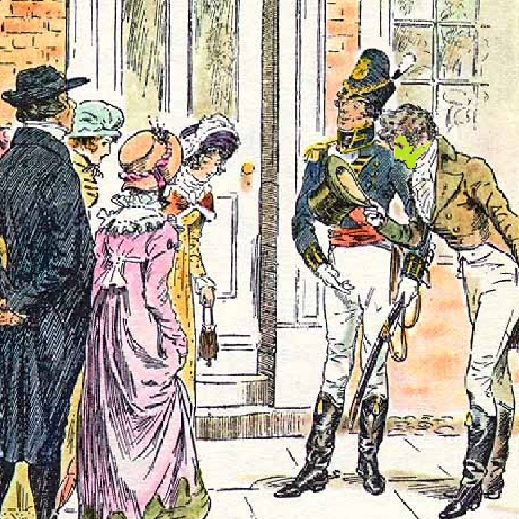In copyright law, several entities may own different rights in the same piece of material. One way this might happen is one someone builds upon the work of another and creates a derivative work. The original work’s author may still own the rights to the original work, but the newer author now has rights on the new spin on things.
Let’s take two examples: One where the original is in the public domain (Remember last week’s post?), and the other where the original is not.
1) The original work of art is in the public domain. The original creator no longer has rights to how the material is used. For example, Jane Austen and Pride and Prejudice. Austen and her estate cannot prevent Hollywood from creating another movie version of Pride and Prejudice. They can do straight up historical versions or modernized approaches, and her estate does not get a penny in royalties. However, these new movies cannot copy each other’s approaches.
To take it to an extreme, but a real example, consider Pride and Prejudice and Zombies. Yup, that’s a real thing. Seth Grahame-Smith took Jane Austen’s classic tale and added zombies. To quote the book publisher, “What ensues is a delightful comedy of manners with plenty of civilized sparring between the two young lovers-and even more violent sparring on the blood-soaked battlefield as Elizabeth wages war against hordes of flesh-eating undead.”
The underlying story of Elizabeth Bennet and Fitzwilliam Darcy belonged to Jane Austen and now to the public domain. But the addition of zombies having the “all-new scenes of bone-crunching zombie action” belong to Mr. Grahame-Smithe. If you want to write about more adventures of Miss Bennet or Mr. Darcy, you are free to do so, but once you add zombies, you are likely treading on Mr. Grahame-Smithe’s territory. That would also include choosing to make a movie, audiobook (“Now With Ultraviolent Zombie Mayhem!”), or sequel, which takes into example #2.
2) The stories of the Avengers are owned by Marvel Worldwide, Inc. Yes, there are trademark issues here, but let’s focus just on copyright for now. The Avengers started out in comic books and have leapt onto computer, TV and movie If you want to send Tony Stark and the Incredible Hulk into harm’s way, you better have permission. Marvel Worldwide, Inc. even makes you agree not to create derivative works in its license for you to access their digital comics. If you did get that permission, then you would have the right for your expression of that adventure, and not the underlying copyrights. Depending on the exact wording of the permission, you may or may not be able to give permission to others to create further derivative works. In other words, you may not get a movie deal and millions of dollars out of it. The Marvel Universe is a very exclusive place to hang out and play with the inhabitants.
Therefore, if you want to “borrow” or “be influenced” or any other euphemism by an original work, you need to be sure you can use the original source as a backdrop – either because it is in the public domain or you have received permission. Then realize that you only receive copyright protection on your addition. If someone else wants to put Mr. Darcy in space after you made him a cowboy, that is fine. However, if you want to make a movie about Astronaut F. Darcy, then be ready to make a deal with the new owner. Feel free to leave Ms. Austen out of it.


